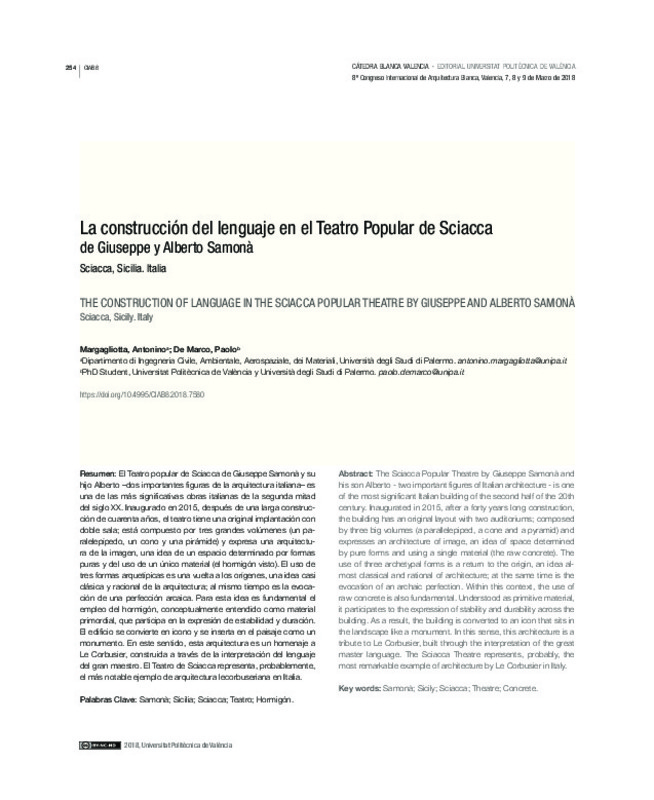JavaScript is disabled for your browser. Some features of this site may not work without it.
Buscar en RiuNet
Listar
Mi cuenta
Estadísticas
Ayuda RiuNet
Admin. UPV
La construcción del lenguaje en el Teatro Popular de Sciacca de Giuseppe y Alberto Samonà
Mostrar el registro completo del ítem
Margagliotta, A.; De Marco, P. (2018). La construcción del lenguaje en el Teatro Popular de Sciacca de Giuseppe y Alberto Samonà. En CIAB 8. VIII Congreso Internacional de arquitectura blanca. Editorial Universitat Politècnica de València. 254-265. https://doi.org/10.4995/CIAB8.2018.7580
Por favor, use este identificador para citar o enlazar este ítem: http://hdl.handle.net/10251/107717
Ficheros en el ítem
Metadatos del ítem
| Título: | La construcción del lenguaje en el Teatro Popular de Sciacca de Giuseppe y Alberto Samonà | |
| Otro titulo: |
|
|
| Autor: | Margagliotta, Antonino De Marco, Paolo | |
| Fecha difusión: |
|
|
| Resumen: |
[EN] The Sciacca Popular Theatre by Giuseppe Samonà and his son Alberto - two important figures of Italian architecture - is one of the most significant Italian building of the second half of the 20th century. Inaugurated ...[+]
[ES] El Teatro popular de Sciacca de Giuseppe Samonà y su hijo Alberto –dos importantes guras de la arquitectura italiana– es una de las más significativas obras italianas de la segunda mitad del siglo XX. Inaugurado en ...[+]
|
|
| Palabras clave: |
|
|
| Derechos de uso: | Reconocimiento - No comercial - Sin obra derivada (by-nc-nd) | |
| ISBN: |
|
|
| Fuente: |
|
|
| DOI: |
|
|
| Editorial: |
|
|
| Versión del editor: | http://ocs.editorial.upv.es/index.php/CIAB/CIAB8/paper/view/7580 | |
| Título del congreso: |
|
|
| Lugar del congreso: |
|
|
| Fecha congreso: |
|
|
| Tipo: |
|








